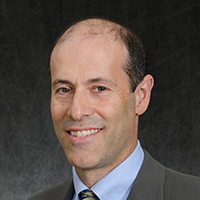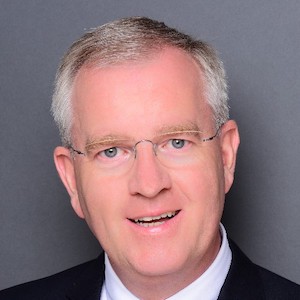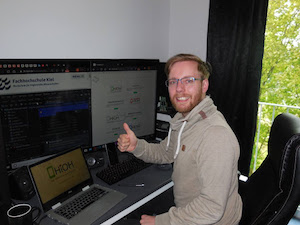Harvard Medical School, Kiel University of Applied Sciences and others are using Nextcloud in the response to COVID-19
Harvard Medical School and Kiel University of Applied Sciences are just some of the universities and medical institutes that use Nextcloud in the fight against COVID-19
February 03 2020, Harvard, Kiel, Stuttgart - Nextcloud Hub is used in dozens of universities, hospitals, and medical institutes in various ways, aiding in fighting the pandemic. The DICOM viewer app for Nextcloud in particular is used in Brazil in the fight against COVID-19. At the Kiel University of Applied Sciences Nextcloud is used in the development of bluetooth measurement algorithms from the OHIOH.de research team. This is a research project using machine learning and AI to improve the accuracy of Bluetooth-based COVID-19 tracking apps where information is collected through "Bluetooth". The application focuses on research topics to warn and help with required actions in fighting and minimizing the spread of COVID-19.
Harvard Medical School with DICOM viewer app supports the global fight against COVID-19
Nextcloud Hub is currently used to diagnose COVID-19 cases in Brazil, as noted in a press release by the Massachusetts General Hospital (MGH is the original and largest teaching affiliate of Harvard Medical School, Boston, MA, USA). To support the global fight against COVID-19, Nextcloud announces the upcoming release will feature additional HIPAA compliance capabilities, enabling even more extensive use with medical data.
The MGH press release concerns a paper in the Journal of Clinical Oncology on the OHIF Viewer and Cornerstone libraries for web-based medical imaging. Support for viewing medical images was developed for Nextcloud by lead developer Aysel Afsar with the release of the DICOM viewer in February 2018 and is currently being used in Brazil to diagnose cases of COVID-19.
 The use of OHIF/Cornerstone imaging technology as a web viewer for the Nextcloud open-source file sharing platform is being made available for free to help save lives during this COVID-19 crisis. This type of integration is exactly the kind of use of open source software that we envision to benefit the medical sector and it is our main motivation behind building open, easy access technology and imaging platforms for medical data.
The use of OHIF/Cornerstone imaging technology as a web viewer for the Nextcloud open-source file sharing platform is being made available for free to help save lives during this COVID-19 crisis. This type of integration is exactly the kind of use of open source software that we envision to benefit the medical sector and it is our main motivation behind building open, easy access technology and imaging platforms for medical data.
-- Gordon J. Harris, Professor of Radiology at Harvard Medical School, Director of 3D Imaging at the Massachusetts General Hospital and President of the Open Health Imaging Foundation
The multiple benefits of open source at the Kiel University of Applied Sciences
Kiel University of Applied Sciences is generally using Nextcloud as their cloud storage system for professors, employees and students hosted by DFN-Cloud. Especially in the OHIOH research project, a separate implementation of Nextcloud had been chosen to store research data for the Bluetooth-based warn app development to fight against the spread of COVID-19.
The OHIOH.de app offers users a convenient platform for voluntarily transferring personal data from smartphones over the Internet to a security-certified database. This database is connected to the app on each device and is used to collect and analyze the supplied information. The app stores the contact data of the users. In the event of a confirmed infection, users can share this data to help inform other contacts, including unknown contacts, of a possible risk of infection via a warning message. People who have been warned can then take appropriate action.
 At Kiel University of Applied Sciences our main priority is to offer students to learn in a safe and stimulating environment. Open source technologies are generally a natural fit for scientific endeavors. In the OHIOH project, our students collaborate through Nextcloud to develop new open source technologies that can help fighting against the COVID-19 pandemic.
At Kiel University of Applied Sciences our main priority is to offer students to learn in a safe and stimulating environment. Open source technologies are generally a natural fit for scientific endeavors. In the OHIOH project, our students collaborate through Nextcloud to develop new open source technologies that can help fighting against the COVID-19 pandemic.
-- Prof. Dr.-Ing. Michael Prange, Professor of Data Science at Kiel University of Applied Sciences and Head of AI Lab Kiel
The OHIOH.de app is based on an open source progressive web app framework using multiple technologies, such as Bluetooth, GPS, and QR-Codes. OHIOH.de app is available as an open source product to sustainably protect society from viruses and diseases. With the OHIOH.de app, tracing can work 100% open source and with higher accuracy based on the user's needs. The architecture is modern: a progressive web app that needs no Google play or Apple app stores and is directly available and installable for all devices from the web.
 The goal is to bring a new open source mindset to Germany especially in the field of privacy-preserving technologies and health. The OHIOH.de team focusses on concerns of citizens regarding COVID-19 and increases known issues with the Bluetooth distance measurements. For our team collaboration, Nextcloud is an awesome base for collecting and sharing knowledge especially for the research project based on AI algorithms and robotics for Bluetooth measurements.
The goal is to bring a new open source mindset to Germany especially in the field of privacy-preserving technologies and health. The OHIOH.de team focusses on concerns of citizens regarding COVID-19 and increases known issues with the Bluetooth distance measurements. For our team collaboration, Nextcloud is an awesome base for collecting and sharing knowledge especially for the research project based on AI algorithms and robotics for Bluetooth measurements.
-- Tjark Ziehm, Founder of OHIOH.de and Head of OHIOH Research Group
About Nextcloud
Nextcloud Hub is the industry-leading, fully open source, on-premises team productivity platform, combining the easy user interface of consumer-grade cloud solutions with the security and compliance measures enterprises need. Nextcloud Hub brings together universal access to data through mobile, desktop and web interfaces with next-generation, on-premise secure communication and collaboration features like real-time document editing, chat and video calls, putting them under direct control of IT and integrated with existing infrastructure.
Nextcloud's easy and quick deployment, open, modular architecture and emphasis on security and advanced federation capabilities enable modern enterprises to leverage their existing file storage assets within and across the borders of their organization. For more information, visit nextcloud.com or follow https://twitter.com/Nextclouders on Twitter.
Links
- Press release from Massachusetts General Hospital
- LinkedIn post on the use of Nextcloud DICOM viewer in Brazil by Aysel
- Nextcloud blog on HIPAA capabilities and details on the use of DICOM viewer in Brazil
- Nextcloud in the healthcare information page
- Nextcloud blog introducing digital imaging for medicine in Nextcloud/
- Nextcloud blog on the update for Dicom viewer
- Wikipedia on Massachusetts General Hospital
- Wikipedia on Health Insurance Portability and Accountability Act
- Link to the OHIOH App
Nextcloud press contact
Nextcloud GmbH
Jos Poortvliet
Phone: +49 (0) 711 25 24 28 90
[email protected]
- Tags:
- AI algorithms
- artificial intelligence (AI)
- Aysel Afsar
- Bluetooth distance measurements
- bluetooth measurement algorithms
- Bluetooth-based COVID-19 tracking apps
- Brazil
- cloud storage system
- COVID-19
- DFN-Cloud
- diagnose COVID-19 cases
- DICOM viewer app for Nextcloud
- Germany
- Gordon J. Harris
- Harvard Medical School
- HIPAA compliance capabilities
- imaging platforms for medical data
- Jos Poortvliet
- Journal of Clinical Oncology
- Kiel University of Applied Sciences
- machine learning
- Massachusetts General Hospital (MGH)
- medical data
- medical institutes
- Michael Prange
- modular architecture
- Nextcloud
- Nextcloud Hub
- Nextcloud open-source file sharing platform
- OHIF Viewer and Cornerstone libraries
- OHIOH Research Group
- OHIOH research project
- OHIOH.de research team
- on-premise secure collaboration
- on-premise secure communication
- on-premises team productivity platform
- open access technology
- open architecture
- open health
- Open Health Imaging Foundation (OHIOH)
- open science
- open source mindset
- open source progressive web app framework
- open source software (OSS)
- open source technologies
- pandemic
- privacy-preserving technologies and health
- Tjark Ziehm
- viewing medical images
- web-based medical imaging
- Login to post comments